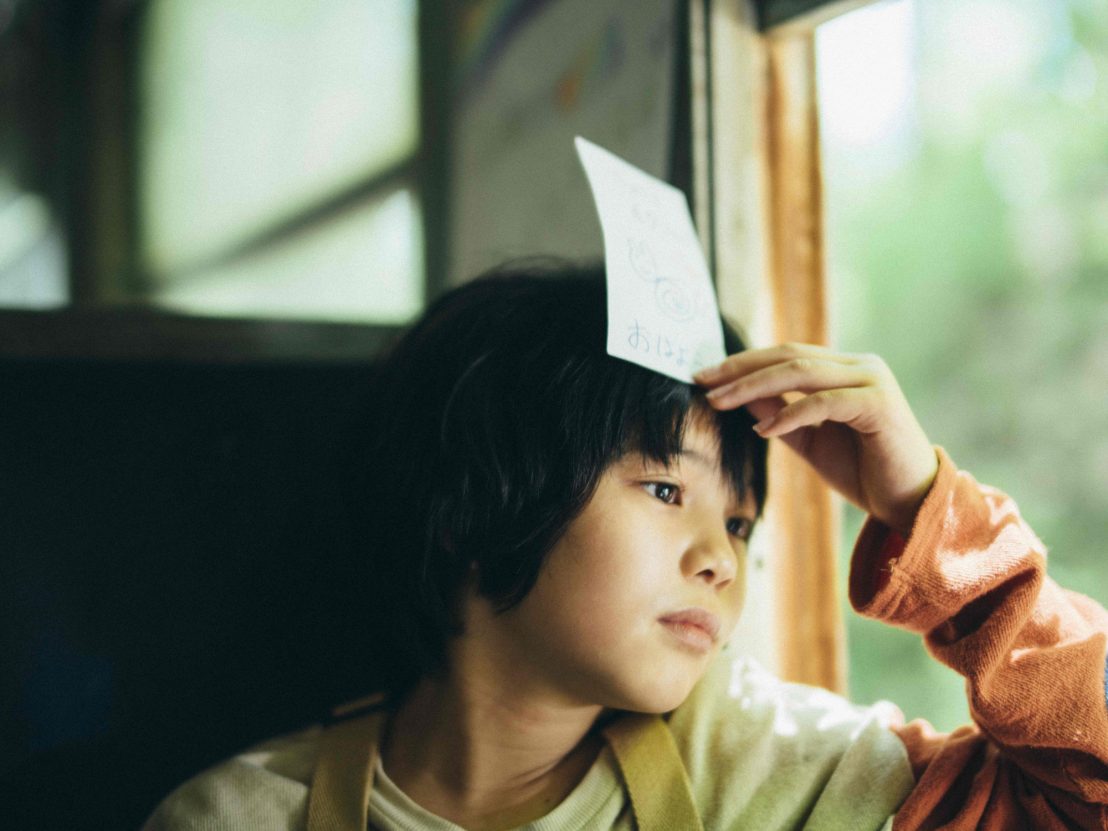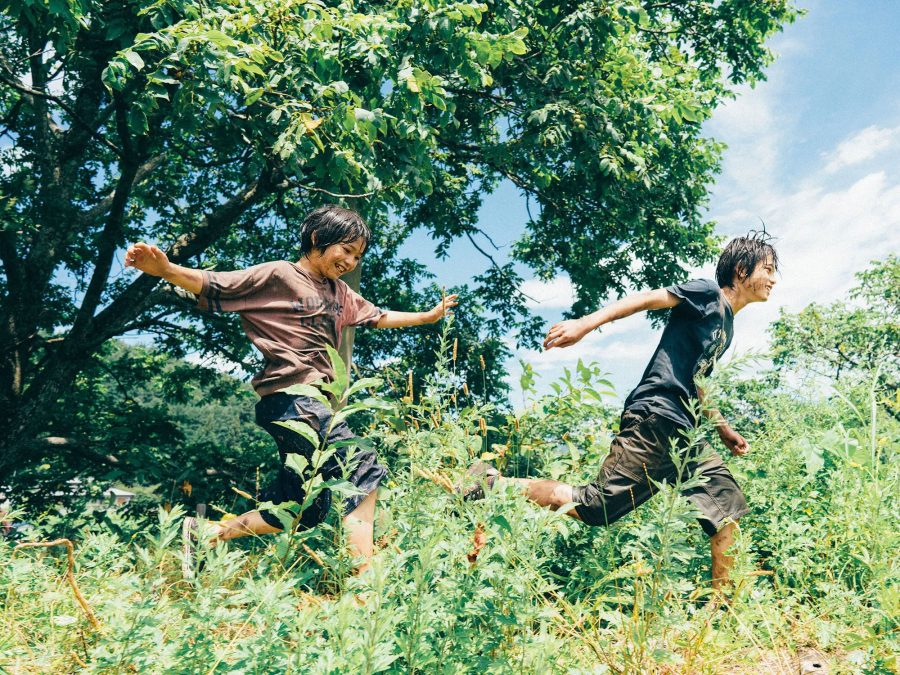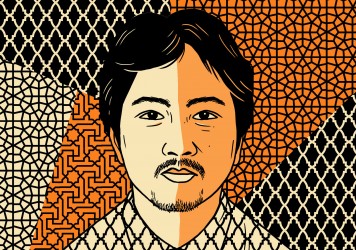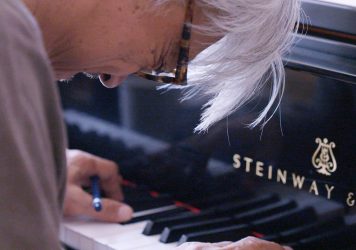
The Japanese filmmaker reflects on the moving experience of working with composer Ryuichi Sakamoto on his final score, for his new drama Monster.
In March 2023, the Japanese film composer Ryuichi Sakamoto, known for work with Yellow Magic Orchestra and scores for films including Merry Christmas, Mr. Lawrence, died aged 71 following a cancer diagnosis. The last director he worked with was Japan’s foremost filmmaker of the present century, Hirokazu Kore-eda. His latest film, and Sakamoto’s last, is Monster, which traces the relationship between schoolboys Minato (Sōya Kurokawa) and Yori (Hinata Hiiragi) and the tensions with a senior generation who do not understand them. It is a film about (mis)communication, nature, and music.
LWLies: How did you approach Ryuchi Sakamoto and why did you want to work with him on this film?
Kore-eda: I’d actually wanted to work with him ten years ago, but that film fell through. I said to him back then that I would love the opportunity to work with him one day. When we found the town where we were going to shoot Monster it had this big lake. I looked at the lake and I thought that this is where the film is going to start and there’s going to be a fire. There’s going to be these red fire engines, and there’s going to be Ryuchi Sakamoto’s piano music.
I knew instinctively that that was what I wanted, and so I wrote to him. There was no reply immediately because he wasn’t well. So I carried on shooting the film and then I was listening to Sakamoto music when I was editing. I used tracks from his albums to create an initial cut that was set entirely to his music. I sent him the initial cut and he wrote back quickly, saying it was very good.
He said that he would probably not have it in him to write a whole film’s worth of music, but that he already had one or two melodies that he would write for me. We wrote to each other back and forth and sent recordings and videos. He couldn’t really speak by that point, so it was all done in writing. It was a precious experience.
That must have been a very different process to how you usually work with composers.
It depends on the film, but what usually happens is when I’m writing the screenplay, I decide on an instrument. Is this a guitar film? Is it a piano? In the past I’ve been listening to Glenn Gould as I was writing and then ended up using that for the film. Then I start listening to different composers, albums using that instrument, and go from there.
The score of Monster is led by the piano, but there is a beautiful scene in which Minato and the school principal play around with a trombone and a French horn. It creates an extraordinary sonic contrast.
That scene was in the screenplay from the beginning. I’m quite jealous that it wasn’t my idea because I love that scene as well. It’s climactic and emotionally important. I realised that straight away when I read it, so then it was just about how to design the sound around that.

I play the trombone, and I often use it as an emotional outlet, even if I’m just blasting notes rather than playing a piece of music. That need for an expressive instrument is at the core of the film, especially in relation to boys’ sexualities.
One thing that’s consistent throughout this film is how hard it is to understand other people. In this case they take something that would have been hard to understand, however many words they’d used, and put that into music. The sounds that Minato and the principal make reach the teacher Hori when he is on the roof about to jump. I think the meaning of those sounds reaches hum on a deeper level, although we may not realise that until later.
Communication without words is something that the screenwriter Yuji Sakamoto has written about many times, so this music scene is very him. There is a sense through the film that there is a heavy, stifling atmosphere, but the place that the boys reach at the end is light and hopeful, and this mode of communication without words is the reason why they are able to reach this place. It is not something that can be explained.
You communicate Yuji Sakamoto’s words into images. What was it like bringing his words to life?
Having not written the script myself actually made it easier to direct. If I had written it by myself, the first two chapters would not have been as good as they are. If I had written that music room scene, I might have had the boys, Minato and Yori, playing together, or Minato and the teacher, Mr Hori. But I don’t think I would ever have put the principal and Minato together. They are the furthest apart. They seem like the two people who would understand each other the least. And yet they have both told a lie to protect something they care about. It’s a very dynamic scene in that sense, and I do not think I would ever have come up with it.
Another aspect of the soundscape of the film, which is present in a lot of your films, are the sounds of nature.
When I read the plot I picked up that this is a story that starts with fire and ends with water. There are also different instances of fire and water throughout the film. We were very careful in how we used the sounds of burning and of water and rain. I worked with the recording department to carefully differentiate between how and where we use those different nature sounds. Things like how the sound of footsteps changes in the tunnel, how space changes sound. I think that really coexists well alongside the music of Ryuichi Sakamoto. In fact, if he had said no when I approached him, I had decided that I would not ask another composer and I would just use the ambient nature sounds.
The sounds of nature were very important and influential to Sakamoto, you can hear it in a lot of his music.
I think towards the end of his life Sakamoto’s music changed gradually away from his old film scores like Merry Christmas, Mr. Lawrence and The Last Emperor and closer to nature sounds. In that sense, what I was doing in this film meant that it was a good fit for his current interests. That’s why it worked out the way it did. We were a good match.
Published 12 Mar 2024

One of Japan’s best living directors tells us about adapting manga and mimicking Ozu.

Don’t miss this sensitive and intuitive portrait of the iconic Japanese film composer.